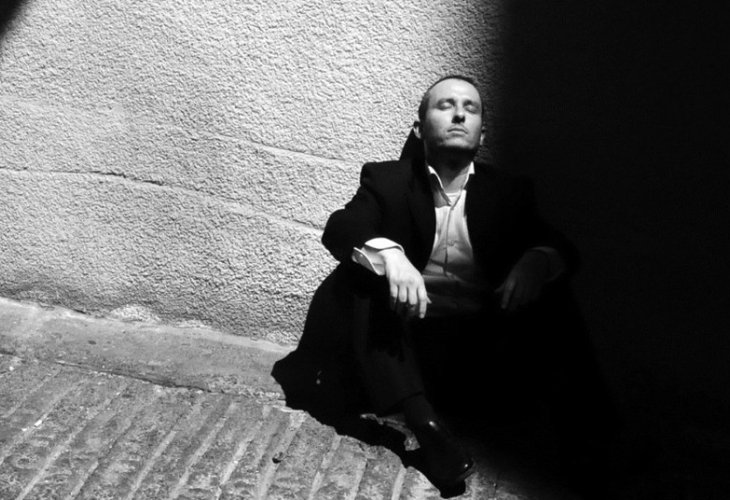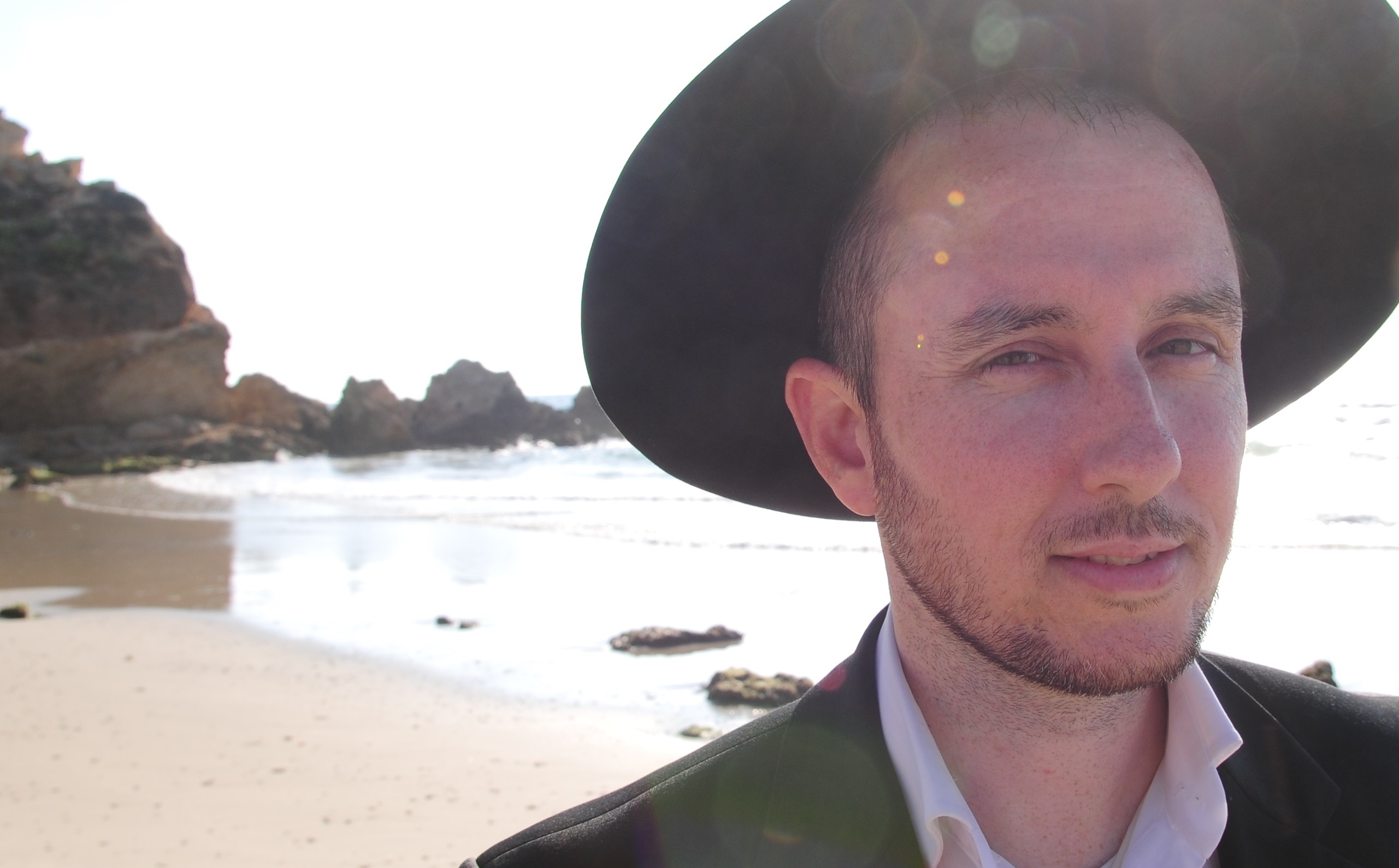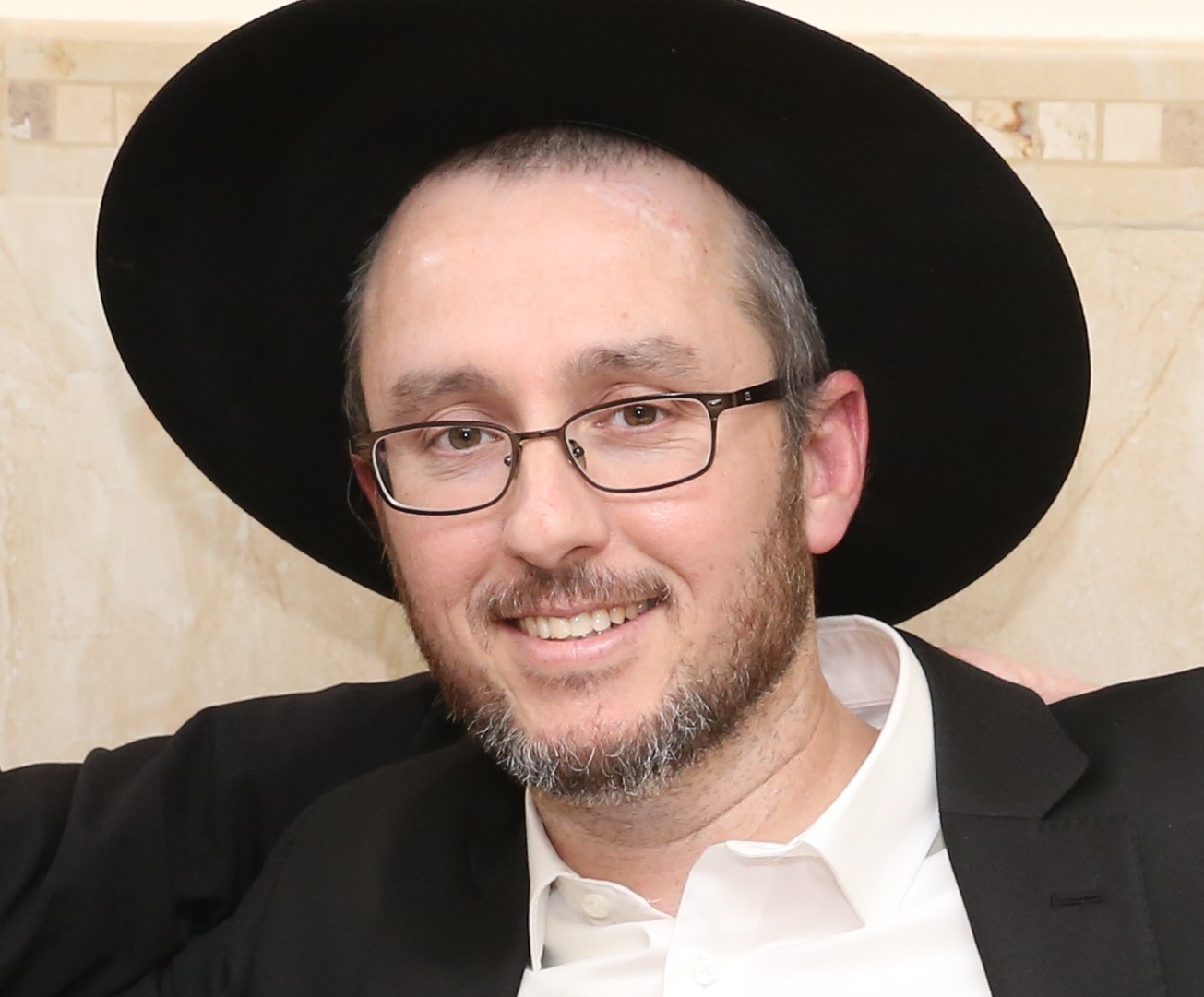A Birthday Revelation: Wisdom Beyond Wealth
Gilad Levene embarked on a musical career, which led him to an unforgettable encounter at a billionaire's birthday party. Spending Shabbat with his sister helped him uncover profound insights.
 Gilad Levene
Gilad LeveneOver a decade has passed since Gilad Levene began his spiritual journey, but during this period between Passover and Shavuot, as we read Pirkei Avot, he reflects on his transformative experience. He remembers, smiles, gets excited, and mostly feels grateful.
"I was a young man," he recalls, "working in music, accompanying various artists with my guitar. One day, I was invited to a unique event—the 80th birthday party of the second richest man in the country. It was a grand affair, hosting 700 people from around the globe, with four TV cameras, two screens, a big production team, and lighting crew. "Who wasn't there?" he reminisces, "Among the guests were major figures—like the Central Command chief, the CEO of Teva, the CEO of Microsoft, famous newspaper editors, and even a special greeting from the president abroad. Over a million dollars was spent on this surprise party, and I was there," he adds with a smile, "Part of a powerful orchestra that played amazing compositions, seated on a specially constructed balcony."
Many spoke at this opulent birthday event, including Gilad. From his place on the balcony, he heard the CEO managing the millionaire's businesses, listening to media and advertising people celebrating, and even witnessed a young boy on stage, who was asked, "What's your story? How are you connected to the second richest man in the country?" He answered: "I met him on the street, shortly after we immigrated to Israel. He asked me, 'What's your dream?' I said I always wanted to play the piano. So, he took me to a music store on Dizengoff and bought me a new piano."
 (Photo: shutterstock)
(Photo: shutterstock)However, Gilad shares that what struck him the most was when a student came forward to speak, saying, "I want to thank the birthday honoree and the company he runs for granting us scholarships and higher education opportunities; as it is said, 'The world stands on three things: education, work, and acts of kindness.'" At that moment, Gilad says he felt something shift in the crowd, as applause echoed for the 80-year-old millionaire, who was also investing in the education of Israeli youth. "Although I didn't know where that quote was from, I decided to engrave it in my memory," he recalls.
What Truly Sustains the World
The following Shabbat, Gilad visited his mother's home. "My mother returned to our traditions years earlier, along with my younger sister," he explains, "Back then, they had already adopted a religious lifestyle, and I occasionally joined them for Shabbat. That Shabbat, I was happy to see them. After long workdays, I craved tranquility. I remember sitting at the table with my mom, my 15-year-old sister, and me, when my sister shared a Torah talk she learned at school. She mentioned, 'It's written in the Mishnah in Pirkei Avot: 'The world stands on three things: Torah, divine service, and acts of kindness.'"
Gilad says something sparked in him upon hearing this. "I know this," he interrupted his sister, having heard it at the millionaire's birthday just days before. "I told my sister about it and then said with admiration: These are such true words because education is crucial; after all, if we don't invest in the youth's education, how will the economy and technology develop? Work is also essential for humanity, as we must be productive, right? Besides, money doesn't fall from the sky, nor does it grow on trees anymore. Acts of kindness? Of course, we must support and help the underprivileged; they deserve equal opportunities too.

"My sister laughed heartily," continues Gilad, "She said, 'You're right in every word, but that's not what I said. I said it's written, 'The world stands on three things: Torah, not education, divine service, and acts of kindness.' And this was said by Shimon the Righteous, one of the remnants of the Great Assembly, composed of wise men and a few prophets who guided Israel until the end of the Second Temple era."
Here, Gilad wants to note more wonderful things his sister quoted then. "My learned sister went to the bookshelf, took a book containing commentaries, and explained to me that the words 'on Torah' refer to the reality where all wisdom and knowledge originate from the Torah. It's not about science or molecular biology, but about understanding the secrets of creation and its purpose. When one studies and applies Torah knowledge, they influence their surroundings and the world, advancing them far more than any other wisdom."
Regarding "divine service", the sister patiently clarified that "it's not about work like you thought. The Mishnah refers to offerings in the Temple and prayer. Both are called service in the Torah. The deepest desire and connection with our Creator is revealed through offerings and prayer."

"And acts of kindness", she continued, "certainly involves helping others, but the Torah's significance and purpose inspire us. Surely you agree that true kindness is giving someone what they lack and can't obtain themselves. If, for instance, I give you a candy when your pocket is full of them, it's a kindness, but not the greatest. But when you have no candies and no way to get one, yet you crave a candy, and I give you one—that's true kindness. It's written, 'Who is a pious person? Someone who acts kindly with their Creator.' There is one thing Hashem seemingly doesn't have, which only we can provide—the completion of our character. When one improves and perfects oneself, they become better. This isn't something Hashem can do for us, as if He makes me a better person, it won't be accredited to me. Therefore, only we can bestow this kindness to Hashem." The sister also added: "It doesn't mean we shouldn't perform good deeds as you listed, but the main beauty of true kindness is building yourself."
Gilad concludes his story with emotion: "That Shabbat, I contemplated deeply over what I heard. I thought about what my sister said and the lavish birthday party I attended. Personally, I witnessed the millionaire's grandchildren, who came from all over the world, but none understood a word of Hebrew. No love for the land, no vision, no values, not Israel—a bunch of the most English young people you could find. I realized what bothered me throughout the event. This millionaire knew how to make money and even contribute it, but that's not enough. You need to know how to contribute to yourself, transform into a better person. Only then can it be passed to future generations."

